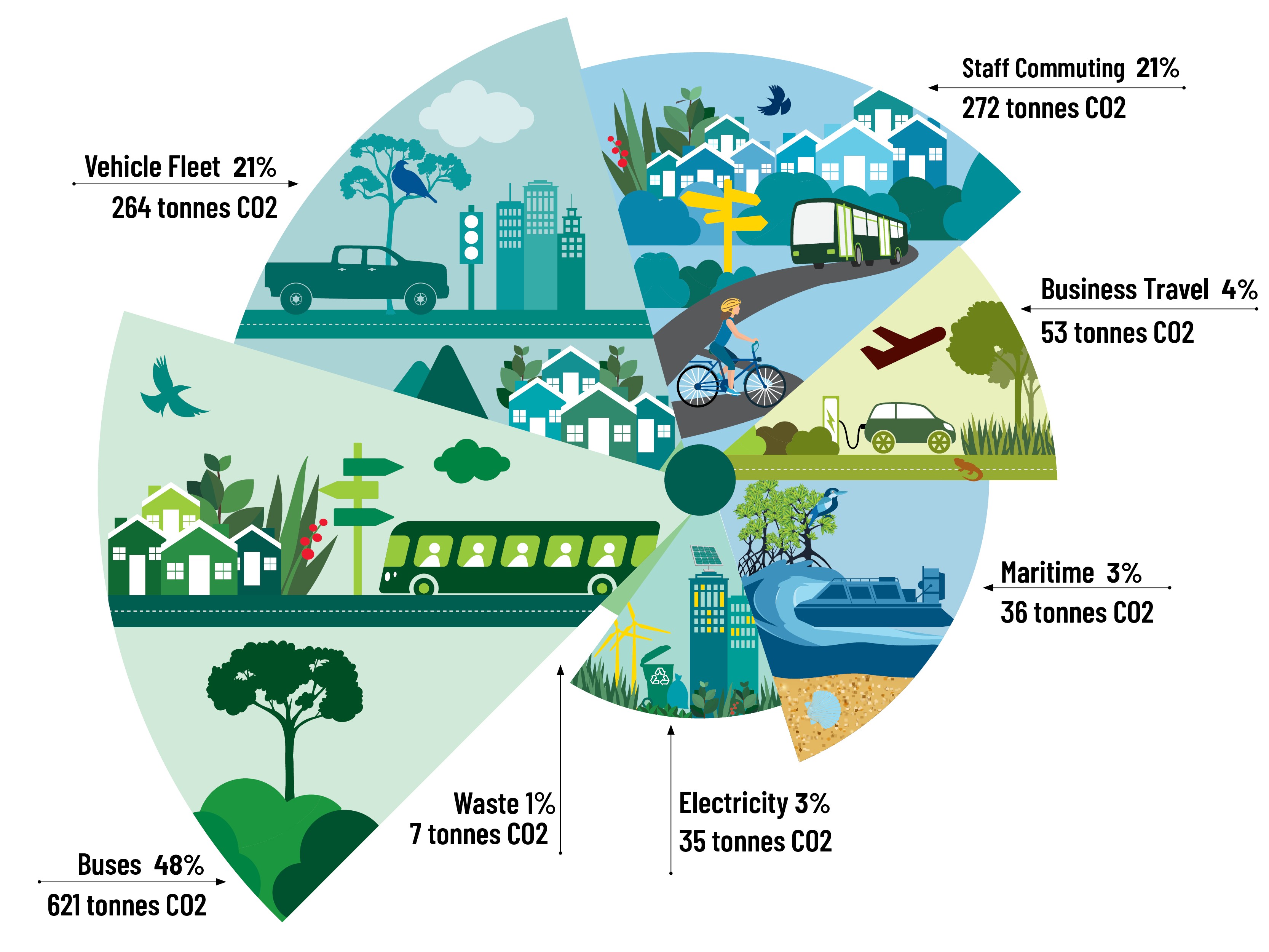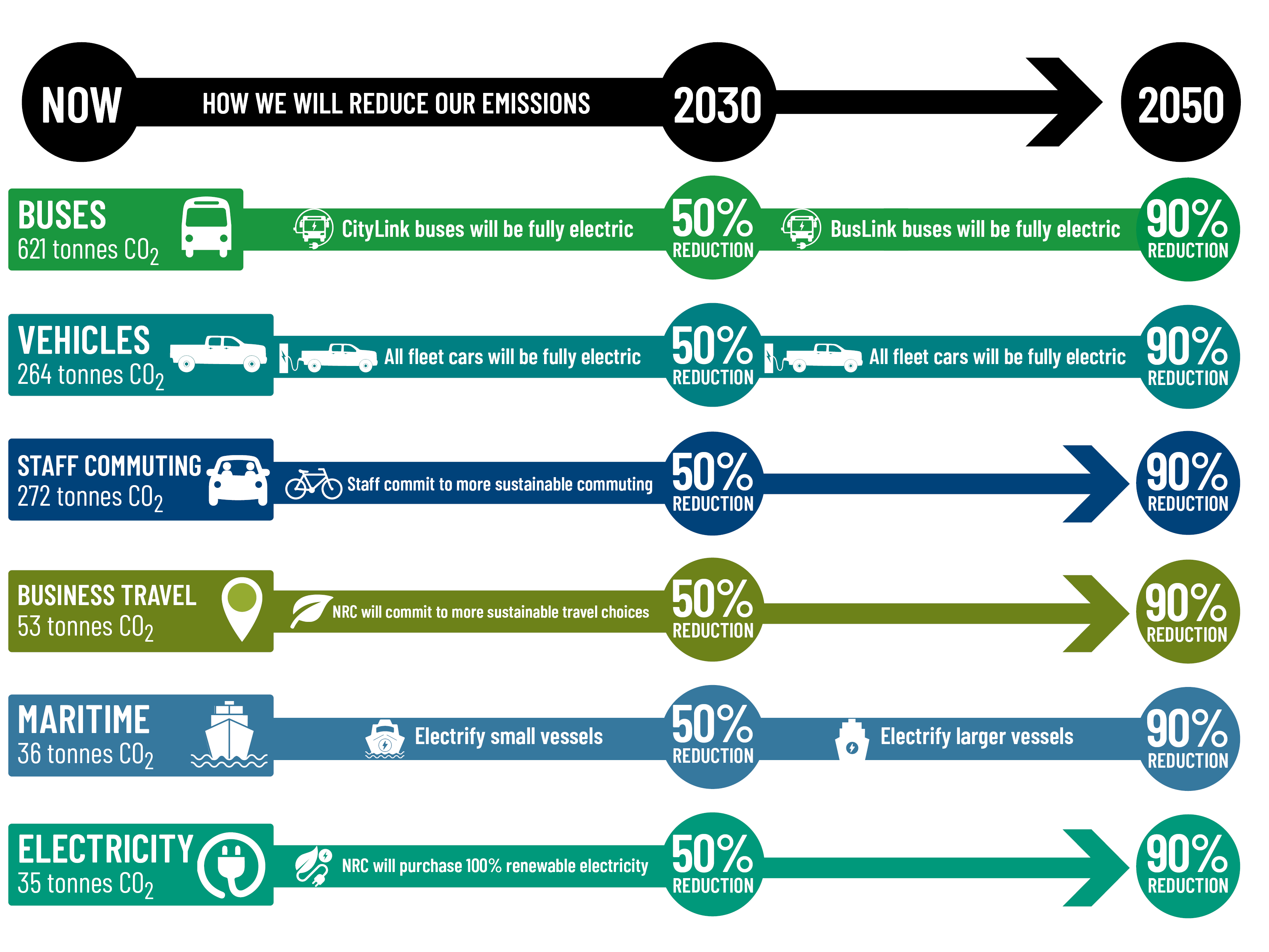Reduce emissions
We will reduce carbon pollution by eliminating council’s use of fossil fuels in our operations and infrastructure, investing in renewable energy and zero-emissions technology, and encouraging our region to transition to a net-zero emissions economy.
These are our goals for reducing emissions and the key activities we plan to undertake to achieve those goals.
NRC Emissions Reduction Plan
Where we are

Click/tap the image to enlarge and see the current emissions across council.
Where we are going
Ngā uaratanga | Our goals
 |
Our greenhouse gas emissions are rapidly reduced in line with Paris Agreement targets, and our region transitions equitably to a prosperous net-zero emissions economy and society. |
 |
Energy, land use and transport in our communities are swiftly transformed to enable equitable outcomes alongside emissions reductions. |
 |
Appropriate land uses are widely adopted that enable net-zero emissions and thriving rural communities. |
 |
Our Māori communities are supported to ensure a tika (correct and fair) transition to a net-zero emissions future. |
 |
Local industry transforms to reach net-zero emissions, while supporting local employment and taking advantage of new opportunities for green jobs. |
Ngā mahi | Our work
 |
Help the region achieve best-practice emissions reductions by providing scientific knowledge, spatial planning and regulatory processes, and supporting land-use change. |
 |
Develop a verified, accredited council ‘Climate-positive transition plan’, following UN Race to Zero criteria, which outlines clear steps to reach Paris-aligned targets, and includes an emissions reduction plan and carbon offset and removal strategy. |
 |
Use rigorous, best-practice carbon accounting, monitoring and verification processes to define a robust emissions profile for council. |
 |
Investigate options and develop business cases for optimised council emissions reduction, including life-cycle emissions assessments. |
 |
Drive council behaviour change and energy efficiency to reduce emissions. |
 |
Support and enable regional climate-positive initiatives, working with our economic development partners alongside industry and primary sectors, government agencies, communities and research centres. |
 |
Invest in appropriate zero-emissions assets and technology, including car, bus and boat fleets, buildings and other assets. |
 |
Work with communities to reduce emissions, e.g. providing efficient and accessible public transport, and supporting initiatives such as coastal shipping. |

